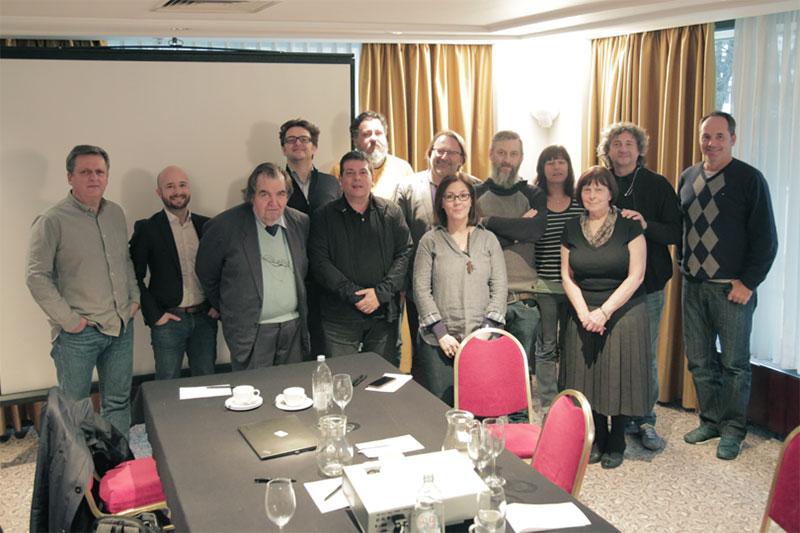
Writers & Directors Worldwide Meets in Croatia and Adds Support to Local Audiovisual Authors’ Campaign for Equitable Treatment
Writers & Directors Worldwide dedicated its most recent executive committee (ExCo) meeting as an opportunity to add its support to the We’ve Had Enough campaign launched by Croatian audiovisual authors in response to political interference in film funding. The council also took the opportunity to meet with local creators and share an international perspective on the fight for authors’ rights in other parts of the world.
The ExCo meeting was kindly hosted by the Croatian Film Directors’ Guild (DHFR) in Zagreb and began with Writers & Directors Worldwide president, Yves Nilly presenting a summary of campaign news from around the world. The group’s participation in supporting the Fairness Rocks legal case was reviewed along with November’s Madrid Manifesto movement in which 250 creators signed a call for EU lawmakers to recognise the importance of harmonised audiovisual rights across all countries. An update on the World Creators Forum in Beijing followed with a report on the two panels held at this month’s FESPACO Film Festival in Burkina Faso. In the latter, the signing of a new collaboration pledge with the Pan-African Filmmakers Federation (FEPACI) was stressed as particularly important for the inclusion of African creators into the council’s global agenda. The next stage in this process is to create a steering committee between the two organisations.
The afternoon was devoted to a round-table discussion with local authors societies, led by ExCo member and UK TV director, Delyth Thomas. The situation in Croatia was first to be reviewed with Danilo Serbedzija, president of DHFR, sharing the authors’ perspective on the new government proposals to review all film funding initiatives. Croatian film director and former head of the Croatian Audiovisual Centre, Hrvoje Hribar was on hand to provide further detail. The situation in neighbouring Slovenia was discussed with Gregor Stibernik, general manager of AIPA and his colleagues, Peter Kep and Kiemen Dvornik. In Slovenia, rights are systematically transferred to the producers but heavy negotiations are underway to change the law. Finally, a recap of the issues also facing Serbian audiovisual authors was followed by a pledge for all parties to remain in close contact and increase cooperation going forward.
Discussions also included the future ExCo election process, methods to increase global representation within the council, new initiatives and updates on The Audiovisual Campaign.
